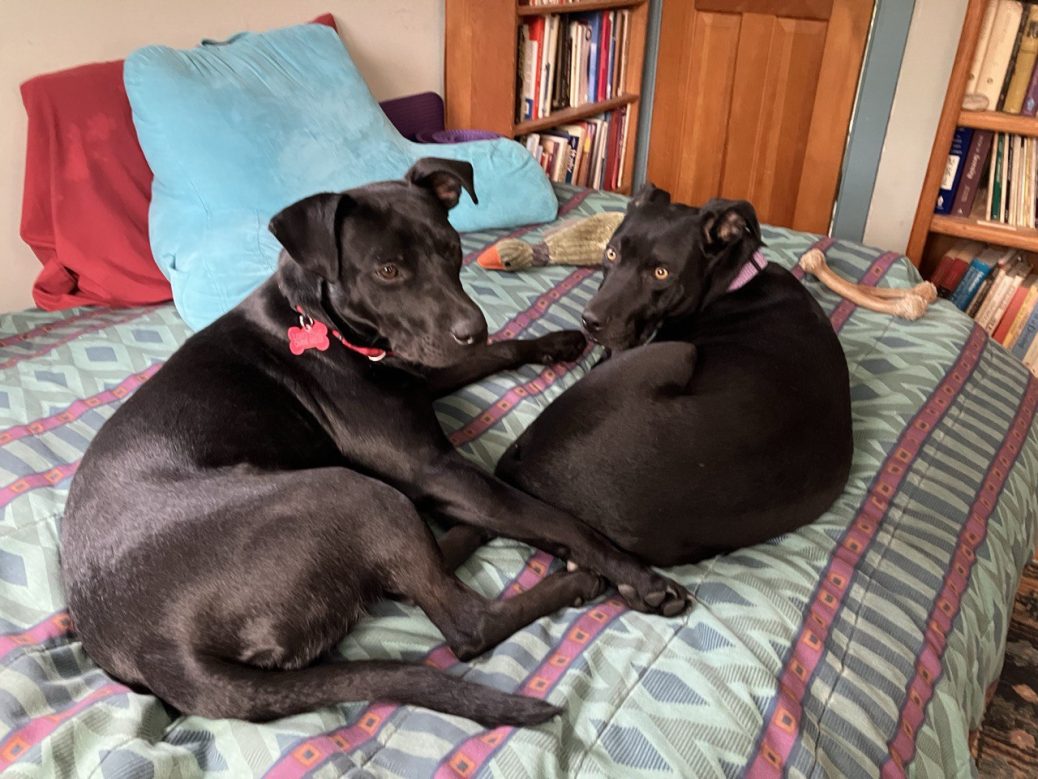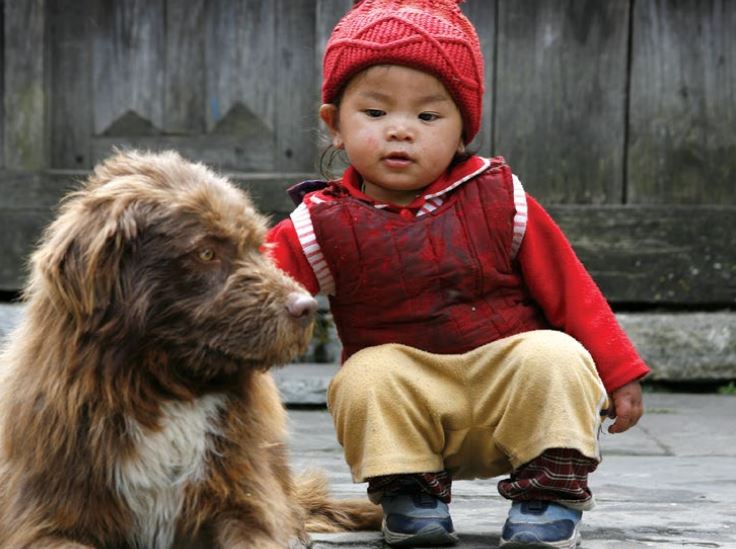Staying Busy and Out of Trouble
by Linda Anderson Krech

Betty was a stray before being placed in a South Carolina shelter, where she was “overlooked” for 6 months. Poor Betty, but the world did provide for her one way or another, and she was transported up to Vermont a few months ago and now she’s here to stay.
Ella is our daughter’s dog. She was also a rescue from down south, though she was a young puppy when she arrived. Though they look alike, that’s where their similarity ends. Betty is wild and rambunctious, Ella is chill and “ellagant”. Betty greets us at the door with dangerous exuberance, Ella waits with nonchalance on the couch (though her tail gives her away). Betty explores in zigzags, Ella prances in a straight line. Betty is brave, mischievous and talkative, Ella is poised, sweet, and gentle. You get the picture. Two very different and very beautiful creatures we have the honor of knowing, loving, and caring for.
Just like humans, dogs are each a mixed bag of lovable attributes and challenging qualities, each uniquely wired to be who they are. Every one of us is a package deal. If I have an idea of how my dog is supposed to be, or my daughter or friend, and I get attached to that idea, I might not be available for the real thing, or be able to appreciate it. I might judge it as somehow wrong, because it looks or feels different than I wanted or expected it to.
It’s not our job to polish up other people or tone them down. That kind of effort is not kind, wise or skillful (even if we spin it that way to ourselves) and it’s also not likely to succeed. Most people don’t appreciate being on the receiving end of an improvement campaign, no matter how well-intentioned it may be. It doesn’t feel loving. And don’t be surprised if it stimulates a desire to start a similar campaign “for your benefit”. Ultimately, efforts to “improve” another person often backfire, while offering acceptance of the package “as is”, with all of the inherent quirks, limitations and rough edges, demonstrates a loving heart. That’s one of the gifts that dogs give us, but as humans, things are not as simple and straightforward. Acceptance is not our human forte.
But we can cultivate greater acceptance, however, by practicing. For example, you can set up “acceptance days” with your partner or other trusted and significant person. Accept all decisions, without communicating your preferences and without trying to exert influence. Notice your internal objections (“Are you kidding, you want us to take a long walk on this cold and rainy day?”), while bundling up and being good company on the walk.
Andrea Miller, in the book Radical Acceptance, suggests that we identify what our deal breakers are – physical violence, infidelity, whatever we’re not willing to accept – and then do our best to accept everything else, without exception. Rather than using our energy to try to change another person, we can use it to polish ourselves and become more accepting and loving. That should keep us busy and out of trouble.
Of course, with dogs and children, it is our responsibility to address problem issues, and it’s important for all involved that we do this. So tomorrow we’ll begin helping Betty to control her wild jumping impulse. We’ve got lots of yummy reward treats on hand, some good tips from a dog trainer, and a promising documentary about penguins to enjoy afterward. Wish us well!













